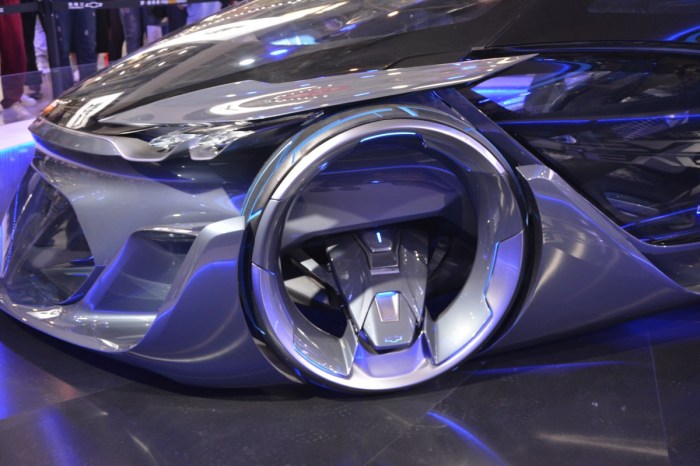Car air conditioning not working is a frustrating issue that can turn any drive into an uncomfortable experience. Imagine stepping into your vehicle on a hot summer day, only to be greeted by a blast of warm air instead of the cool relief you expect. Understanding the common causes, along with effective troubleshooting steps, can help you regain your comfort and save on costly repairs.
From identifying refrigerant leaks to recognizing the signs of a failing compressor, being aware of the potential culprits is key. This guide will walk you through the necessary steps to diagnose, fix, and maintain your car’s air conditioning system, ensuring you’re prepared for any temperature challenges ahead.
Common Causes of Car Air Conditioning Problems
Car air conditioning systems are crucial for comfort during hot weather, but they can often experience issues that compromise their efficiency. Understanding the common causes of these problems can help vehicle owners make informed decisions about repairs and maintenance.
Common Issues Leading to Air Conditioning Failure
Several factors can contribute to air conditioning failure in vehicles. Among them are:
- Refrigerant Leaks: Leaks in the refrigerant lines can significantly reduce the cooling performance. When refrigerant escapes, the system cannot maintain the necessary pressure to operate effectively, leading to inadequate cooling or complete system failure.
- Compressor Failure: The compressor is the heart of the air conditioning system, responsible for circulating refrigerant. If it fails, the system will not produce cold air, and the entire unit may need replacement.
- Clogged Filters: Dirty or clogged cabin air filters can restrict airflow, resulting in poor cooling and an unpleasant driving experience.
Refrigerant Leaks and Their Impact
Refrigerant is essential for the air conditioning system to function properly. When there is a leak, not only does it affect cooling performance, but it can also lead to increased wear on components, as they work harder to compensate for the loss. Detection and repair of leaks are critical to restoring system efficiency.
The Role of the Compressor

The compressor compresses refrigerant and circulates it through the system. A malfunctioning compressor can lead to various problems, including failure to produce cold air. Signs of a failing compressor may include unusual noises or a burning smell, indicating that it needs immediate attention.
Troubleshooting Steps for Car Air Conditioning
Diagnosing air conditioning issues requires a systematic approach. Here’s a step-by-step guide to help identify the problem.
Step-by-Step Diagnosis
Follow these steps to troubleshoot your vehicle’s air conditioning system:
- Check for Signs of Refrigerant Leaks: Look for oily spots around the refrigerant lines or connections.
- Inspect the Compressor: Listen for unusual noises when the AC is turned on. A functional compressor should operate quietly.
- Examine the Cabin Air Filter: Remove and check the filter for dirt and blockage that could impede airflow.
Checklist of Symptoms
A comprehensive checklist can help pinpoint specific air conditioning problems:
- No cold air coming from vents
- Unusual noises when AC is activated
- Weak airflow from the vents
- Unpleasant odors when the AC is on
Checking Fuses and Relays
Fuses and relays control the electrical components of the air conditioning system. To check them:
- Locate the fuse box and identify the AC fuses.
- Remove the fuses and check for any breaks or damage.
- Test the relays by swapping with similar ones in the box to see if the AC activates.
DIY Repairs for Car Air Conditioning
Many car air conditioning issues can be addressed with DIY repairs, saving both time and money.
Recharging the Air Conditioning System
Recharging the air conditioning system with refrigerant can restore cooling efficiency. Here’s how to do it safely:
- Purchase the correct refrigerant for your vehicle.
- Attach the refrigerant canister to the low-pressure service port.
- Follow the instructions on the canister to add refrigerant while monitoring the pressure gauge.
Replacing a Faulty Compressor or Condenser

If the compressor is beyond repair, replacing it is necessary. This process typically involves:
- Disconnecting the battery and recovering refrigerant.
- Removing the old compressor, taking care to disconnect electrical and refrigerant lines.
- Installing the new compressor and reassembling all components.
Cleaning the AC Evaporator, Car air conditioning not working
A clean evaporator is vital for optimal airflow. To clean it:
- Access the evaporator from the cabin, typically behind the dashboard.
- Use a specialized cleaner to remove debris and buildup.
- Allow it to dry completely before reassembling.
Professional Solutions for Air Conditioning Issues: Car Air Conditioning Not Working
While DIY repairs are effective, certain situations require professional expertise.
When to Seek Professional Help
Professional assistance is advisable when:
- Complicated repairs are needed, such as electrical diagnostics.
- Refrigerant recovery and recharging is required, as it needs specialized equipment.
- The problem persists after DIY troubleshooting.
Services Offered by Automotive Technicians
Automotive technicians provide a range of services for air conditioning repairs, including:
- System diagnostics and leak detection
- Compressor and condenser replacements
- Refrigerant recharging
Cost of Professional Repairs
Costs can vary based on the complexity of the repair, but typical expenses may include:
- Diagnostic fees ranging from $100 to $150
- Compressor replacement costing between $500 and $1,200
- Refrigerant recharge costing around $100
Maintenance Tips for Car Air Conditioning
Regular maintenance can extend the life of your air conditioning system and ensure it operates efficiently.
Maintenance Schedule
Creating a maintenance schedule is crucial for keeping the AC system in top condition. Recommended intervals include:
- Checking refrigerant levels every year
- Replacing cabin air filters every 12,000 miles
- Scheduling professional inspections every two years
Best Practices for Optimal Condition
To maintain optimal performance:
- Run the AC system regularly, even in cooler months, to keep components lubricated.
- Keep the exterior of the vehicle clean to prevent debris from entering the system.
- Park in shaded areas to minimize heat build-up inside the vehicle.
Seasonal Checks

Seasonal checks are essential before the summer heat hits:
- Test the AC system by running it to ensure it cools effectively.
- Inspect hoses and belts for signs of wear.
- Check and clean the condenser to remove any blockages.
Environmental Considerations for Car Air Conditioning
As awareness of environmental issues increases, understanding the impact of car air conditioning systems is essential.
Impact of Refrigerants
Refrigerants can have damaging effects on the environment, particularly those that are ozone-depleting. It’s important to use refrigerants that have lower global warming potential (GWP) to minimize harm.
Proper Disposal of Components
Proper disposal of air conditioning components is crucial to prevent environmental damage. Follow these guidelines:
- Always recover refrigerant before disposal.
- Take components to a certified recycling facility.
- Never dispose of refrigerants in the trash or down the drain.
Eco-Friendly Alternatives
The automotive industry is moving toward environmentally friendly refrigerants, such as R-1234yf, which have a significantly lower impact on global warming compared to traditional refrigerants. Vehicle manufacturers are increasingly adopting these alternatives to promote sustainability.
Final Thoughts
In conclusion, addressing car air conditioning not working can be a straightforward process if you know what to look for. Whether you choose to tackle the repairs yourself or seek professional assistance, staying informed about your vehicle’s air conditioning system will not only enhance your driving comfort but also prolong the system’s lifespan. Remember, regular maintenance and timely checks are your best allies in keeping the cool air flowing.